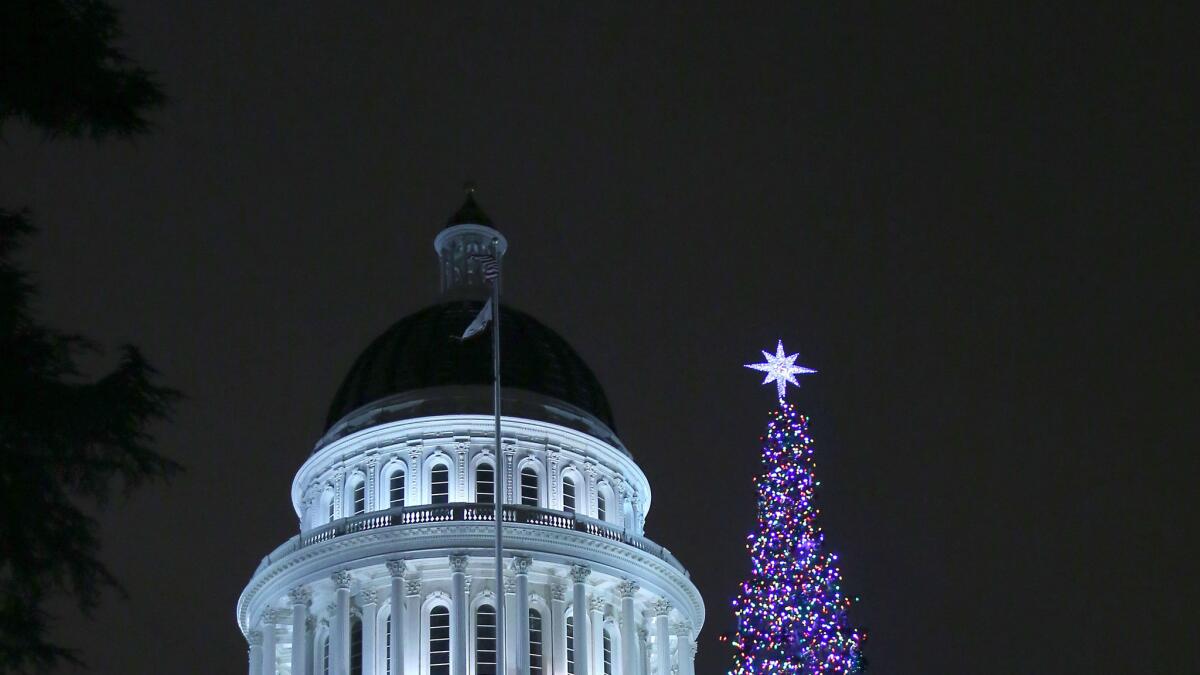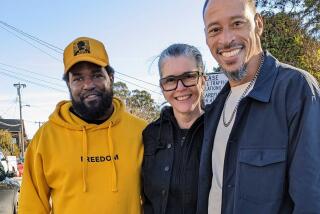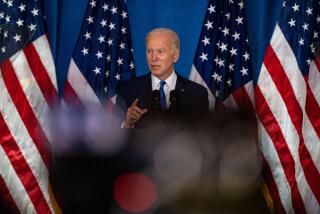Jerry Brown’s pardons 2014: 105 get Christmas gift

As is his custom at Christmas, Gov. Jerry Brown on Wednesday released a list of 105 people, mostly minor drug offenders, who have received pardons from him.
The Christmas pardons are in addition to 63 announced at Easter; the governor has pardoned 510 people since resuming office in 2011. Govs. Arnold Schwarzenegger, Gray Davis and Pete Wilson combined granted 29 pardons over 20 years.
------------
FOR THE RECORD
Dec. 24, 1:16 p.m.: An earlier version of this article stated that Gov. Jerry Brown has issued 482 pardons since resuming office in 2011. He has issued 510 pardons in that period.
------------
It is a largely secretive process. The governor’s office typically sends pardon applications to the Board of Parole Hearings for investigation, and the files are returned without a recommendation, leaving the final decision to Brown’s staff. The governor’s office refuses to release those files, contending that his office is shielded from the state public records law.
Typically, most of those seeking pardons have already obtained a Superior Court declaration that they are rehabilitated, a process many public defenders’ offices will assist in for free. Others apply directly to the governor, often with the assistance of private lawyers.
Those granted pardons have all completed their sentences and been released from custody for more than a decade without further criminal activity, Evan Westrup, Brown’s press secretary, said earlier this year.
The criteria cited by the governor’s office are simple: Clemency is given to those “who have demonstrated exemplary behavior and have lived productive and law-abiding lives following their conviction. Pardons are not granted unless they are earned.”
A gubernatorial pardon does not expunge a record, but it does restore some rights and permit employment in jobs from which felons are prohibited.
California voters in November created a speedier alternative to the pardon process in Proposition 47. The ballot measure converts felony drug possession and minor theft charges to a misdemeanor. Those with past offenses have three years to apply to local courts to have those felonies removed altogether.
More to Read
Start your day right
Sign up for Essential California for news, features and recommendations from the L.A. Times and beyond in your inbox six days a week.
You may occasionally receive promotional content from the Los Angeles Times.







